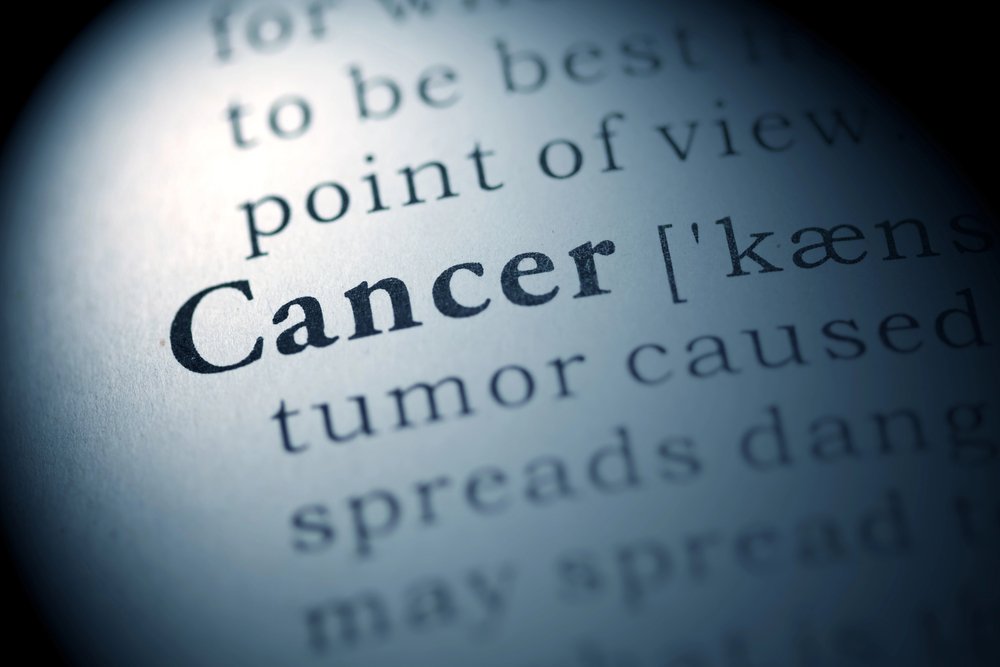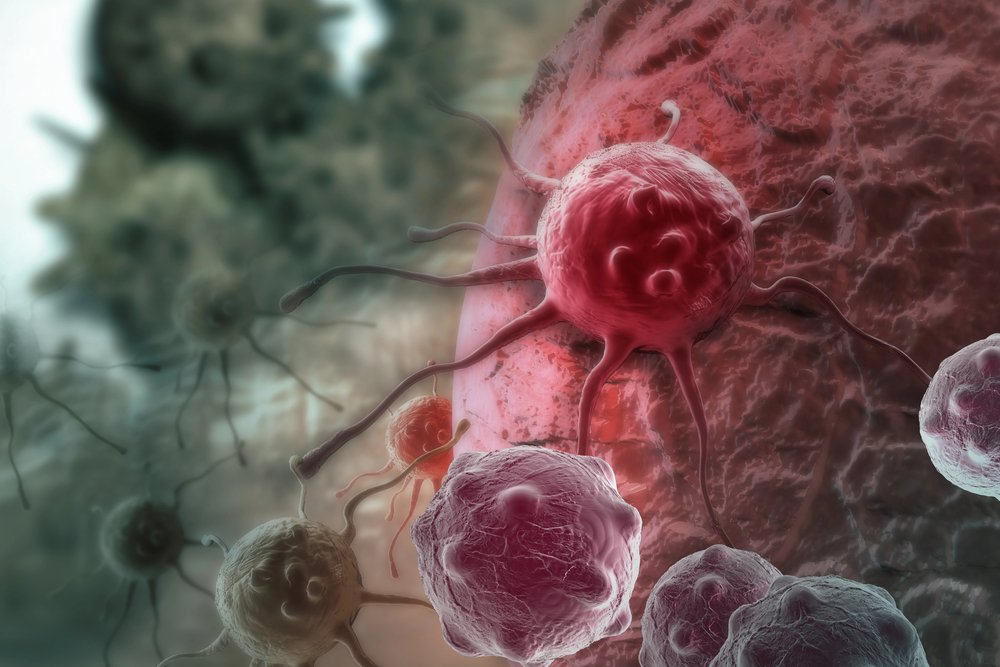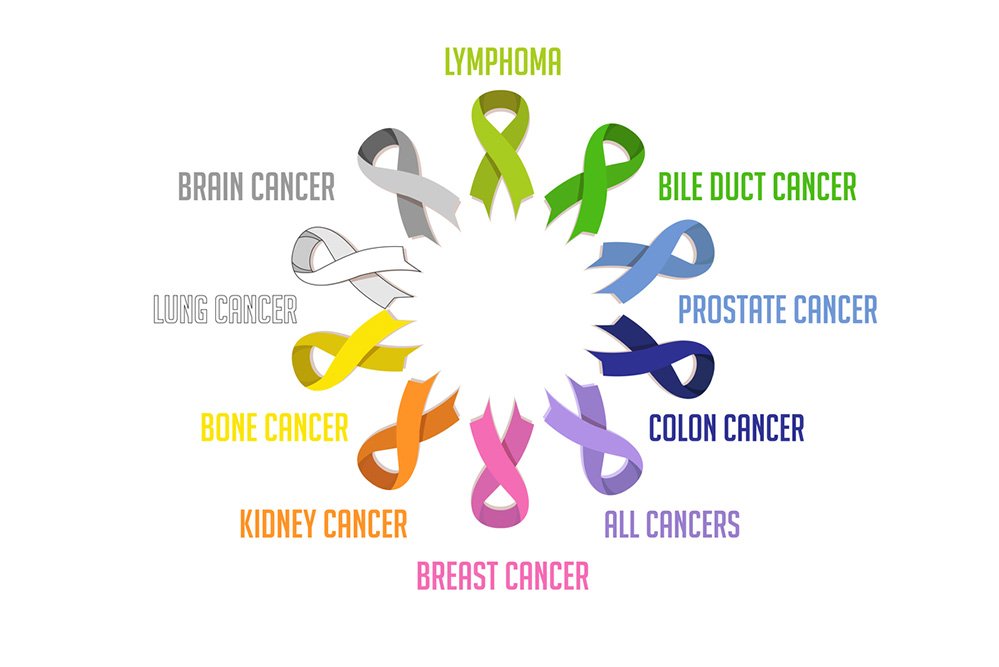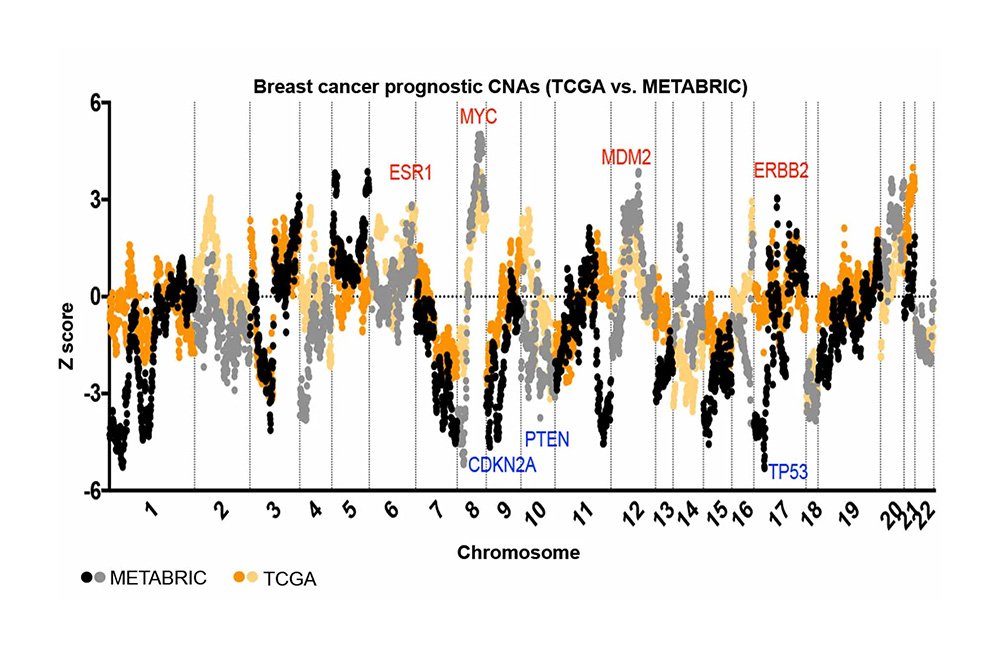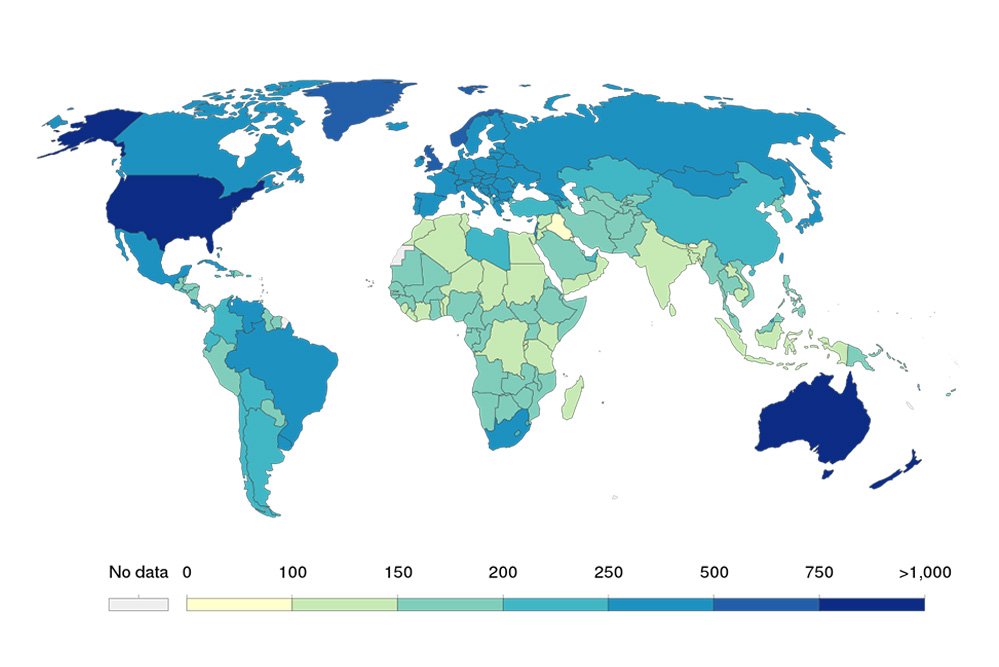Society and Culture
Although many diseases (such as heart failure) may have a worse prognosis than most cases of cancer, cancer is the subject of widespread fear and taboos. The euphemism of “a long illness” to describe cancers leading to death is still commonly used in obituaries, rather than naming the disease explicitly, reflecting an apparent stigma. Cancer is also euphemised as “the C-word”; Macmillan Cancer Support uses the term to try to lessen the fear around the disease. In Nigeria, one local name for cancer translates into English as “the disease that cannot be cured”. This deep belief that cancer is necessarily a difficult and usually deadly disease is reflected in the systems chosen by society to compile cancer statistics: the most common form of cancer—non-melanoma skin cancers, accounting for about one-third of cancer cases worldwide, but very few deaths—are excluded from cancer statistics specifically because they are easily treated and almost always cured, often in a single, short, outpatient procedure.
Western conceptions of patients’ rights for people with cancer include a duty to fully disclose the medical situation to the person, and the right to engage in shared decision-making in a way that respects the person’s own values. In other cultures, other rights and values are preferred. For example, most African cultures value whole families rather than individualism. In parts of Africa, a diagnosis is commonly made so late that cure is not possible, and treatment, if available at all, would quickly bankrupt the family. As a result of these factors, African healthcare providers tend to let family members decide whether, when and how to disclose the diagnosis, and they tend to do so slowly and circuitously, as the person shows interest and an ability to cope with the grim news. People from Asian and South American countries also tend to prefer a slower, less candid approach to disclosure than is idealized in the United States and Western Europe, and they believe that sometimes it would be preferable not to be told about a cancer diagnosis. In general, disclosure of the diagnosis is more common than it was in the 20th century, but full disclosure of the prognosis is not offered to many patients around the world.
In the United States and some other cultures, cancer is regarded as a disease that must be “fought” to end the “civil insurrection”; a War on Cancer was declared in the US. Military metaphors are particularly common in descriptions of cancer’s human effects, and they emphasize both the state of the patient’s health and the need to take immediate, decisive actions himself rather than to delay, to ignore or to rely entirely on others. The military metaphors also help rationalize radical, destructive treatments.
In the 1970s, a relatively popular alternative cancer treatment in the US was a specialized form of talk therapy, based on the idea that cancer was caused by a bad attitude. People with a “cancer personality”—depressed, repressed, self-loathing and afraid to express their emotions—were believed to have manifested cancer through subconscious desire. Some psychotherapists claimed that treatment to change the patient’s outlook on life would cure the cancer. Among other effects, this belief allowed society to blame the victim for having caused the cancer (by “wanting” it) or having prevented its cure (by not becoming a sufficiently happy, fearless and loving person). It also increased patients’ anxiety, as they incorrectly believed that natural emotions of sadness, anger or fear shorten their lives. The idea was ridiculed by Susan Sontag, who published Illness as Metaphor while recovering from treatment for breast cancer in 1978. Although the original idea is now generally regarded as nonsense, the idea partly persists in a reduced form with a widespread, but incorrect, belief that deliberately cultivating a habit of positive thinking will increase survival. This notion is particularly strong in breast cancer culture.
One idea about why people with cancer are blamed or stigmatized, called the just-world hypothesis, is that blaming cancer on the patient’s actions or attitudes allows the blamers to regain a sense of control. This is based upon the blamers’ belief that the world is fundamentally just and so any dangerous illness, like cancer, must be a type of punishment for bad choices, because in a just world, bad things would not happen to good people.
Economic Effect
The total health care expenditure on cancer in the US was estimated to be $80.2 billion in 2015. Even though cancer-related health care expenditure have increased in absolute terms during recent decades, the share of health expenditure devoted to cancer treatment has remained close to 5% between the 1960s and 2004. A similar pattern has been observed in Europe where about 6% of all health care expenditure are spent on cancer treatment. In addition to health care expenditure and financial toxicity, cancer causes indirect costs in the form of productivity losses due to sick days, permanent incapacity and disability as well as premature death during working age. Cancer causes also costs for informal care. Indirect costs and informal care costs are typically estimated to exceed or equal the health care costs of cancer.
Workplace
In the United States, cancer is included as a protected condition by the Equal Employment Opportunity Commission (EEOC), mainly due to the potential for cancer having discriminating effects on workers. Discrimination in the workplace could occur if an employer holds a false belief that a person with cancer is not capable of doing a job properly, and may ask for more sick leave than other employees. Employers may also make hiring or firing decisions based on misconceptions about cancer disabilities, if present. The EEOC provides interview guidelines for employers, as well as lists of possible solutions for assessing and accommodating employees with cancer.
Divorce Gender Disparity
Women are six times more likely to be separated or divorced soon after a diagnosis of cancer or multiple sclerosis than men. Doctors in neuro-oncology practices noticed that divorce occurred almost exclusively when the wife was the patient.

A coronal CT scan showing a malignant mesothelioma
Legend: → tumor ←, ✱ central pleural effusion, 1 & 3 lungs, 2 spine, 4 ribs, 5 aorta, 6 spleen, 7 & 8 kidneys, 9 liver



